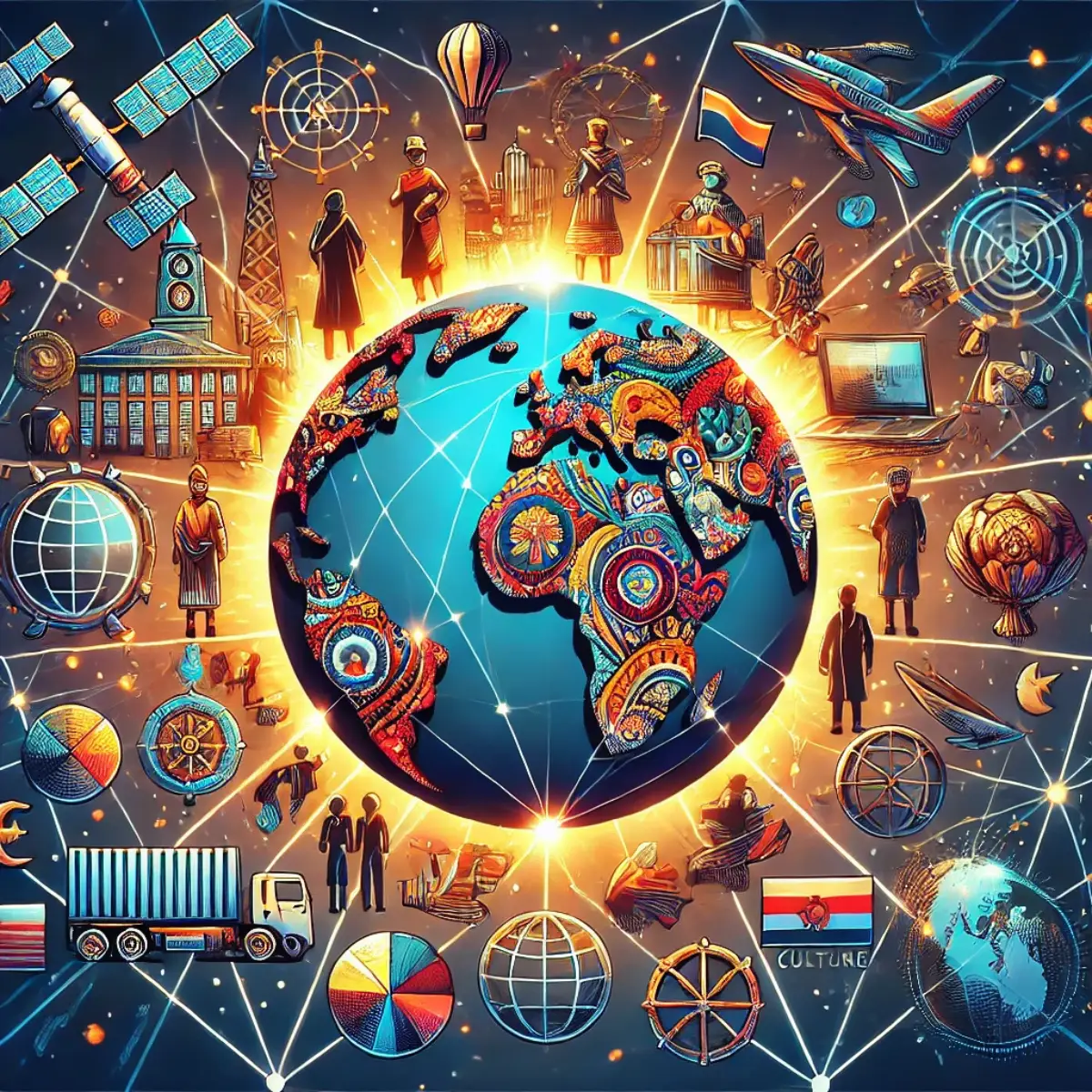Understanding the Factors Involved in Globalization: A Comprehensive Guide
Introduction
Globalization has become a defining feature of the modern world, shaping economies, societies, and cultures. But what are the factors involved in globalization? From technological advancements to cultural exchange, a myriad of elements drive the phenomenon, creating a global village. This article delves into these key factors, providing an informative and nuanced perspective.
Key Takeaways
- Globalization is influenced by multiple economic, political, cultural, and technological factors.
- Understanding these drivers is crucial for leveraging opportunities and mitigating challenges.
- Insights into globalization help in addressing its effects on society, environment, and global governance.
1. The Role of Technology in Driving Globalization
Technological advancements are at the heart of globalization, facilitating communication, trade, and cultural exchange.
Key Contributions:
- Communication technologies: Innovations like the internet and mobile networks have made real-time interactions possible across continents.
- Transport technologies: The development of efficient shipping, air travel, and high-speed trains reduces physical barriers.
Example:
E-commerce giants like Amazon and Alibaba owe their global reach to robust digital infrastructure, making cross-border transactions seamless.
2. Economic Integration and Trade Liberalization
Economic factors are critical in understanding globalization. Nations increasingly rely on each other for goods, services, and capital.
Highlights:
- Free trade agreements reduce tariffs and encourage cross-border trade.
- The rise of multinational corporations (MNCs) like Apple and Toyota exemplifies integrated supply chains.
| Economic Factor | Example |
|---|---|
| Trade liberalization | NAFTA, EU Single Market |
| Investment flows | Foreign Direct Investments (FDIs) |
| Global financial markets | Stock exchanges & cryptocurrency |
3. The Influence of Political Factors
Politics plays a pivotal role in globalization, setting the framework for international cooperation and competition.
Key Political Drivers:
- Formation of international organizations like the UN, WTO, and IMF.
- Agreements fostering global governance, such as climate accords.
- Geopolitical shifts influencing regional integration (e.g., Brexit’s impact on the EU).
4. Cultural Exchange and Its Role in Globalization
Globalization isn’t just about economics or politics; it’s also about cultural diffusion.
Cultural Drivers:
- The spread of languages like English as a global lingua franca.
- Cultural products (movies, music, food) crossing borders.
- Platforms like Netflix showcasing diverse content to international audiences.
Tip:
“Embrace cultural diversity in professional settings to foster global collaborations.”
5. The Environmental Impact and Global Cooperation
Environmental concerns are increasingly central to discussions on globalization.
Key Issues:
- Climate change requires global solutions (e.g., Paris Agreement).
- Globalization often leads to resource depletion and biodiversity loss.
- Environmental NGOs operate across borders to advocate for sustainability.
6. Social and Ethical Dimensions of Globalization
Globalization raises questions about social equity and ethical considerations.
Key Concerns:
- The widening gap between rich and poor countries.
- Ethical dilemmas in labor exploitation, such as sweatshops.
- The challenge of preserving local identities amidst global homogeneity.
7. Historical Perspectives on Globalization
Examining the history of globalization provides context for its current dynamics.
Milestones:
- Age of Exploration (15th-17th centuries): Initiated global trade.
- The Industrial Revolution: Enabled mass production and transportation.
- The rise of the digital age: Accelerated information exchange.
8. Technological Disparities and Digital Divide
Not all countries benefit equally from technological advancements.
Challenges:
- Developing nations often face a digital divide, limiting access to opportunities.
- Efforts like internet connectivity initiatives aim to bridge the gap.
9. Challenges of Global Governance in a Globalized World
Managing globalization requires robust governance frameworks.
Key Challenges:
- Balancing national interests with global priorities.
- Addressing cross-border issues like pandemics and cybercrime.
- Ensuring that policies are inclusive and equitable.
FAQs
What are the main drivers of globalization?
Key drivers include technological advancements, trade liberalization, political agreements, and cultural exchanges.
How does globalization impact the environment?
While it fosters global cooperation on issues like climate change, it can also lead to environmental degradation due to increased industrialization.
What role do multinational corporations play in globalization?
MNCs connect markets, create global supply chains, and influence economic and cultural landscapes.
Conclusion
The factors involved in globalization span technology, economics, politics, culture, and the environment. Together, they form a web of interconnected influences shaping the modern world.
Understanding these dynamics helps us address both the opportunities and challenges globalization presents. What are your thoughts on the impact of globalization in your life? Share your experiences and check out our other blogs for more insights into global trends!


Your writing unfolds with deliberate grace, each sentence contributing to a cohesive meditative rhythm. The reader is invited to pause, contemplate, and engage fully with the layered ideas and emotional resonance.
Pingback: Nlpadel: Everything You Need to Know About the Growing Padel Trend - leatheling
Pingback: Lyposingrass: Nature’s Hidden Gem for Wellness Sustainability and Vitality - leatheling
Pingback: Future Ready Offices in Cyprus: Embracing Innovation, Flexibility, and Sustainability - leatheling
Pingback: What Is Shrink? Understanding Its Meaning in Retail, Business, and Packaging - leatheling
Pingback: Milan Fashion Week 2025: Schedule, Key Dates, Top Designers & Trending Styles - LeatHeling
Pingback: Do You Need a Passport to Go to Hawaii? Your Easy Guide - LeatHeling
Pingback: Waterborne Diseases & Sanitation: Causes, Symptoms & Prevention Overview - LeatHeling
Pingback: Travel Blog Travellingapples Ideas and Tips for iPhone & iOS Users in Pakistan - LeatHeling
Pingback: Vieredbuay: What We Know and Why Information Is Unclear - LeatHeling
Pingback: Wamjankoviz: Who Is He and What We Know - LeatHeling